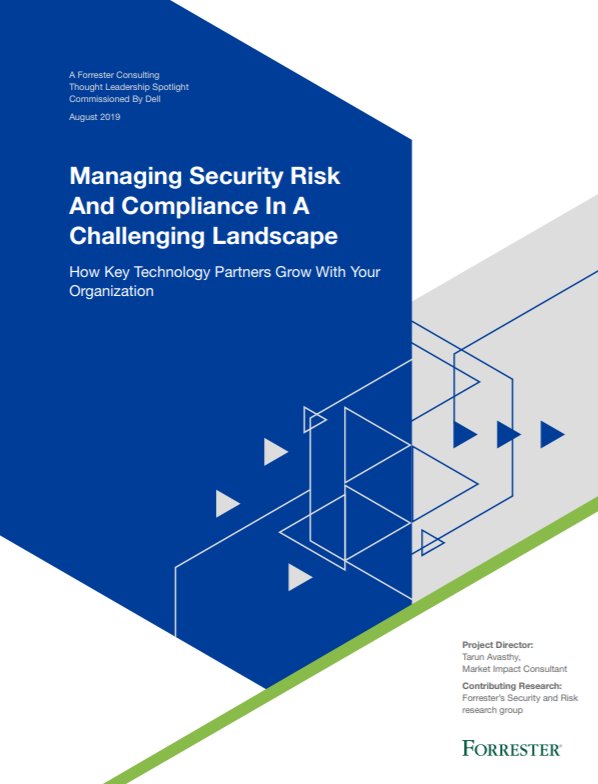NCSC issues Exchange hack warning as Microsoft probes security partner leak
An estimated 7,000 UK servers have been affected by the vulnerabilities and only half have been secured


The National Cyber Security Centre (NCSC) has urged businesses to patch against recently disclosed vulnerabilities in Exchange as Microsoft investigates whether hackers exploiting the flaws had obtained information from its security partners.
Businesses should install the latest Microsoft Exchange updates “as a matter of urgency”, as well as search their systems for evidence of compromise, according to the latest advice from the NCSC. The government agency asked any affected UK organisations to disclose “any suspected compromises” via the NCSC cyber security incident reporting website.
The agency has confirmed that an estimated 7,000 UK servers had been affected by the vulnerabilities, of which around half have already been secured.
NCSC director for Operations Paul Chichester said that “organisations should also be alive to the threat of ransomware and familiarise themselves with [the NCSC’s] guidance”.
Chichester said that the agency is “working closely with industry and international partners to understand the scale and impact of UK exposure, but it is vital that all organisations take immediate steps to protect their networks”.
“Whilst this work is ongoing, the most important action is to install the latest Microsoft updates,” he added.
The guidance came as Microsoft launched an investigation into whether an unnamed Microsoft security partner, which had access to sensitive information on the vulnerabilities behind the attacks, had leaked the intelligence to hacking groups – and whether it had done so by accident or on purpose.
Get the ITPro daily newsletter
Sign up today and you will receive a free copy of our Future Focus 2025 report - the leading guidance on AI, cybersecurity and other IT challenges as per 700+ senior executives
Insider sources told the Wall Street Journal that the tech giant was in the process of reviewing the Microsoft Active Protections Program (Mapp), an information-sharing programme launched in 2008 with the aim of providing security companies a head start in detecting cyber security threats.
A number of Mapp partners had knowledge of the vulnerabilities since 23 February, a week prior to the release of patches and the launch of the attacks, according to the sources. Out of the estimated 80 organisations involved in the programme globally, about 10 are based in China – where the state-sponsored Hafnium group is said to be operating from.
RELATED RESOURCE

Managing security risk and compliance in a challenging landscape
How key technology partners grow with your organisation
Hafnium has been accused of orchestrating the attacks immediately after they were first reported, with Microsoft’s corporate VP of Customer Security & Trust, Tom Burt, saying that “while Hafnium is based in China, it conducts its operations primarily from leased virtual private servers (VPS) in the United States”.
“Historically, Hafnium primarily targets entities in the United States for the purpose of exfiltrating information from a number of industry sectors, including infectious disease researchers, law firms, higher education institutions, defence contractors, policy think tanks and NGOs,” he said, adding that the group “engaged in a number of attacks using previously unknown exploits targeting on-premises Exchange Server software”.
However, since then it has been revealed that at least 10 other hacking groups were also involved in exploiting the Exchange Server vulnerabilities.
Having only graduated from City University in 2019, Sabina has already demonstrated her abilities as a keen writer and effective journalist. Currently a content writer for Drapers, Sabina spent a number of years writing for ITPro, specialising in networking and telecommunications, as well as charting the efforts of technology companies to improve their inclusion and diversity strategies, a topic close to her heart.
Sabina has also held a number of editorial roles at Harper's Bazaar, Cube Collective, and HighClouds.
-
 Bigger salaries, more burnout: Is the CISO role in crisis?
Bigger salaries, more burnout: Is the CISO role in crisis?In-depth CISOs are more stressed than ever before – but why is this and what can be done?
By Kate O'Flaherty Published
-
 Cheap cyber crime kits can be bought on the dark web for less than $25
Cheap cyber crime kits can be bought on the dark web for less than $25News Research from NordVPN shows phishing kits are now widely available on the dark web and via messaging apps like Telegram, and are often selling for less than $25.
By Emma Woollacott Published
-
 Hackers are targeting Ivanti VPN users again – here’s what you need to know
Hackers are targeting Ivanti VPN users again – here’s what you need to knowNews Ivanti has re-patched a security flaw in its Connect Secure VPN appliances that's been exploited by a China-linked espionage group since at least the middle of March.
By Emma Woollacott Published
-
 Broadcom issues urgent alert over three VMware zero-days
Broadcom issues urgent alert over three VMware zero-daysNews The firm says it has information to suggest all three are being exploited in the wild
By Solomon Klappholz Published
-
 Nakivo backup flaw still present on some systems months after firms’ ‘silent patch’, researchers claim
Nakivo backup flaw still present on some systems months after firms’ ‘silent patch’, researchers claimNews Over 200 vulnerable Nakivo backup instances have been identified months after the firm silently patched a security flaw.
By Solomon Klappholz Published
-
 Everything you need to know about the Microsoft Power Pages vulnerability
Everything you need to know about the Microsoft Power Pages vulnerabilityNews A severe Microsoft Power Pages vulnerability has been fixed after cyber criminals were found to have been exploiting unpatched systems in the wild.
By Solomon Klappholz Published
-
 Vulnerability management complexity is leaving enterprises at serious risk
Vulnerability management complexity is leaving enterprises at serious riskNews Fragmented data and siloed processes mean remediation is taking too long
By Emma Woollacott Published
-
 A critical Ivanti flaw is being exploited in the wild – here’s what you need to know
A critical Ivanti flaw is being exploited in the wild – here’s what you need to knowNews Cyber criminals are actively exploiting a critical RCE flaw affecting Ivanti Connect Secure appliances
By Solomon Klappholz Published
-
 Researchers claim an AMD security flaw could let hackers access encrypted data
Researchers claim an AMD security flaw could let hackers access encrypted dataNews Using only a $10 test rig, researchers were able to pull off the badRAM attack
By Solomon Klappholz Published
-
 A journey to cyber resilience
A journey to cyber resiliencewhitepaper DORA: Ushering in a new era of cyber security
By ITPro Published